Coronavirus: 100 pop-up fever clinics to open in Australia under $2.4b health plan
Scott Morrison has announced Italian visitors will be banned in Australia from tonight, as he unveiled details of a $2.4 billion health response to the coronavirus including $1.1 billion to stockpile on masks and protective equipment.
National
Don't miss out on the headlines from National. Followed categories will be added to My News.
Australia will place a travel ban on Italian visitors from 6pm (AEDT today), Prime Minister Scott Morrison has announced.
“Italy itself has effectively put itself into lockdown with travel now, and this largely closes that loop. We already had the enhanced screening measures that are in place,” the Prime Minister said.
“This, of course, will mean that any Australians — residents or others, who are obviously exempt from those travel bans — would be subject to the same isolation period that applies to the other countries for which there are travel bans.”
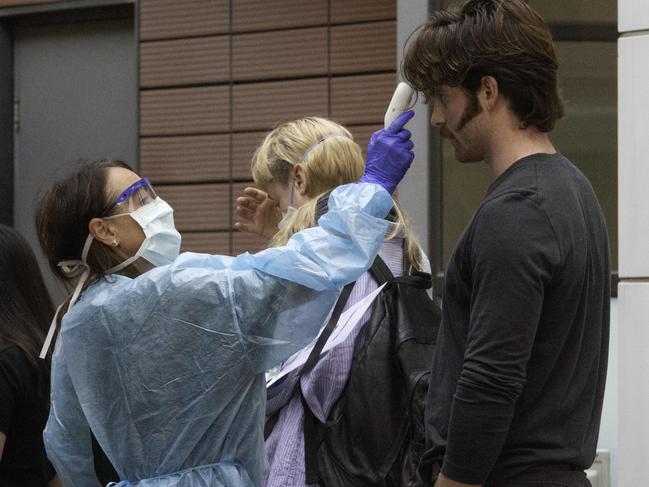
It comes as the federal government steps up its health response to the crisis by pledging $2.4b into everything from free telehealth services and pop-up testing clinics.
Health Minister Greg Hunt today announced $1.1 billion of the funds would be used to keep up the critical stockpile of masks, protective equipment, and drugs to replenish the National Medical Stockpile.
Mr Hunt revealed $101.2 million would be spent on helping aged care providers prepare for the widening outbreak, while $30 million will go to researching vaccines and anti-viral drugs.
A further $170.2 million will go toward an MBS Microbiology Test for Covid-19, including pathology testing in aged care, the National Patient 24/7 Hotline will get a $50.7 million funding boost and $5 million will go to fast-track electronic prescribing.
About $25 million will be spent on a Home Medicines Service and $57.8 million on a remote community preparedness and retrieval program.
The National Incident Room will be given a $18.4 million boost to respond to the Covid-19 outbreak.
As previously announced, $206.7 million will be spent setting up 100 fever clinics around Australia, $30 million will be used for a national health information campaign, $500 million will go to state and territory hospitals, and $100 million will be spent on telehealth services for people in isolation to access a doctor or nurse by phone or video conference.
Mr Hunt said the package was created following medical advice and was designed to cover the “four pillars” of the Australian health system – primary care, the aged care system, the
hospital system, and research.
“In aged care, we’ll be providing additional workforce support of just over $100 million,” he said.
“That’s to ensure if there are temporary shortages or additional costs over and above those which they would ordinarily have.”
Mr Hunt said the hospital funding would be a 50/50 split with states with the expected total cost to be $1 billion, however that is uncapped.
“In terms of research, we will invest $30 million in research into vaccines, anti-virals and immunotherapy, or respiratory treatments.”
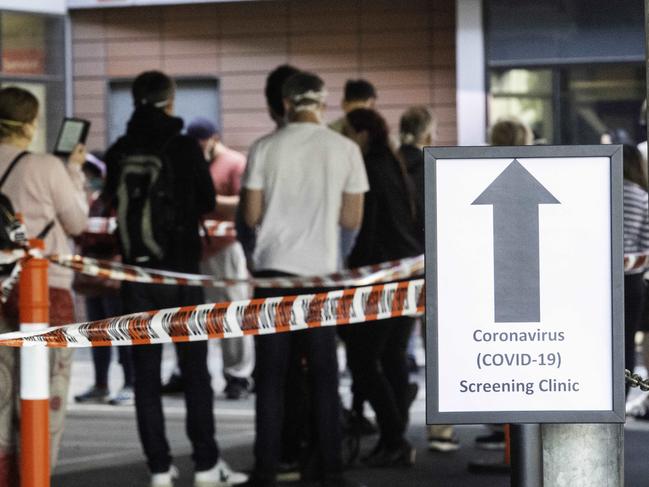
AMA president Tony Bartone said people with symptoms should only go to a clinic if they’ve recently been overseas or had contact with someone diagnosed with the virus.
“We’re still not advocating widespread community testing of anyone with the sniffles. It may change over the next little while, but at this stage we’re still trying to identify cases, isolate them,” Dr Bartone told ABC radio.
Some pop-up clinics are already running, including at hospitals in Melbourne and South Australia.
Australia’s Chief Medical Officer Brendan Murphy confirmed there were 100 cases of coronavirus in Australia, with more than half already cleared.
Three Australians have died so far as Sydney proves a hotspot. NSW has 61 confirmed cased (at 10.20am AEDT) after six new patients were confirmed on Tuesday night.
Victoria now has 21 coronavirus cases (at 10.20am AEDT) after three more people tested positive overnight, including a man who worked at a Melbourne school while infectious.
Of the 18 confirmed cases in Queensland, eight have been cleared of the coronavirus and discharged.
In South Australia, where drive-through coronavirus testing stations have opened in an Australian-first, three of seven confirmed cases have recovered.
In other development, Tasmania’s internationally popular festival, Dark Mofo, has been cancelled over coronavirus fears.
It comes as workers are being shown the door with industries laying off thousands of staff in a bid to cope with the financial fallout of the deadly coronavirus epidemic.
Large footwear and clothing chains are among many retailers letting go of workers as consumer demand continues to plummet.
The Australian Retailers Association’s executive director Russell Zimmerman said the retail sector was in a world of pain after experiencing recent downfalls in turnover of between 15 and 20 per cent.
“There’s a number of retailers who have tried to cut back or even tell their casuals they haven’t got any available work for them at the moment,” he said.
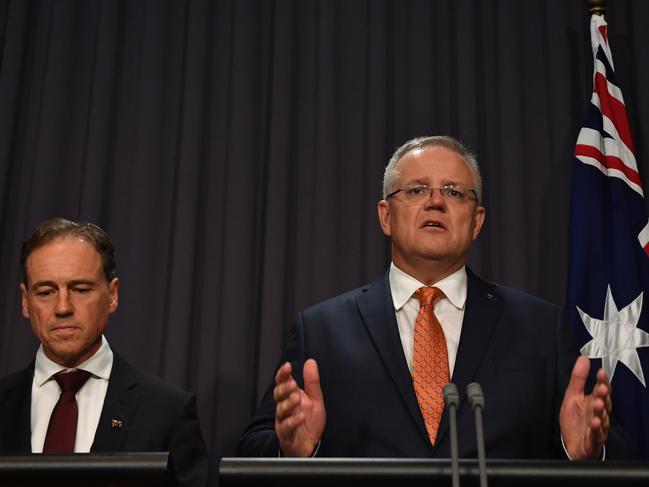
“If you haven’t got a lot of stock to put in and you haven’t got a lot of customers to serve then you don’t necessarily bring your casuals in.
“If it’s a casual and you don’t need them anymore that’s when you’ll say to them you can’t keep them on because you don’t have money coming through the till.”
Prime Minister Scott Morrison on Tuesday said while the Federal Government was finalising the multi-billion fiscal stimulus package they remained focused on keeping “people in jobs, keep businesses in business and ensure we bounce back on the other side”.
The tourism industry has also been badly hit with falling numbers of jetsetters and local and international tourists.
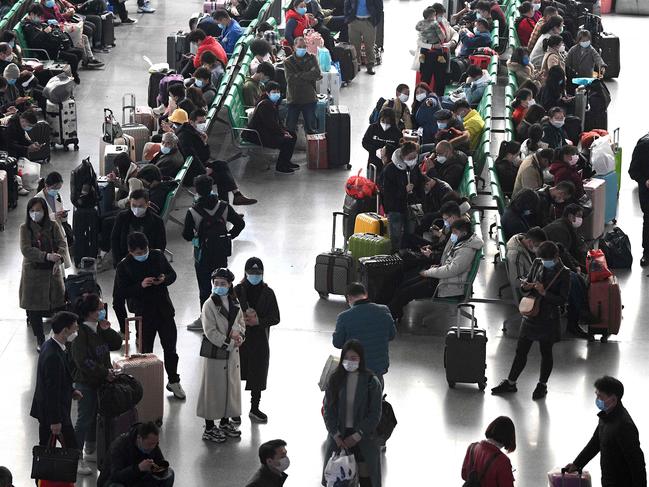
Qantas announced it was cutting its international flights by almost a quarter for the next six months, which will have an impact on jobs.
Chief executive officer Alan Joyce, who will not take a salary for six months, said: “less flying means less work for our people, but we know coronavirus will pass and we want to avoid job losses wherever possible”.
“We’re asking our people to use their paid leave and, if they can, consider taking some unpaid leave given we’re flying a lot less.”
A Tourism and Transport Forum report on the impacts of the coronavirus forecast tourism job losses of between 15 and 20 per cent of up to 133,200 jobs.
“It’s devastating, a lot of these businesses are desperately trying to hold onto their staff,” CEO Margy Osmond said
The tourism sector has been very badly hit on the Gold Coast and in Cairns which are popular hot spots among Chinese tourists.
The Restaurant and Catering Industry Association’s chief executive officer Wes Lambert said up to 50 per cent of front-of-house staff were casual employees and many had been stood down.
RELATED NEWS:
Huge blow for Coachella amid virus threat
Kate’s Italian nightmare amid virus lockdown
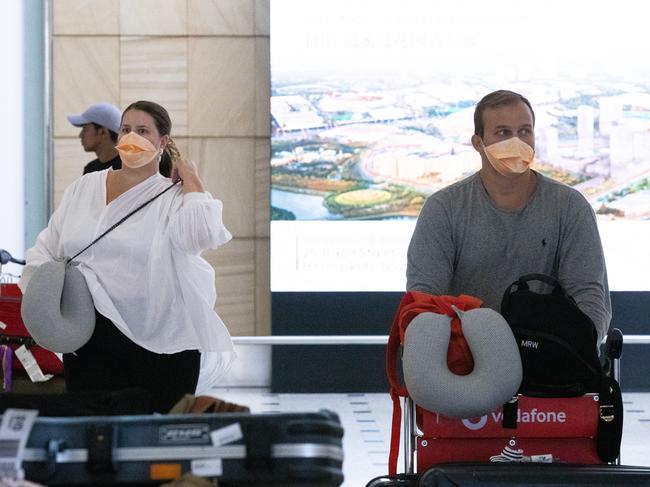
“Businesses are standing down their casual employees based on the perfect storm of bushfires, floods, drought and coronavirus,” he said.
“This is after speaking to restaurateurs both in all the affected areas around the country and in every state, both in CBDs and regions.”
FIRST UK MP TESTS POSITIVE TO CORONAVIRUS
A health minister has become the UK’s first MP to be diagnosed with coronavirus.
Nadine Dorries, 62, confirmed to The Times she started feeling unwell on Friday before receiving an official diagnosis today.
Her symptoms have been said to include a dry cough, high temperature and ‘vice-like’ pain in her chest.
It comes as Britain, Germany, France and Spain were on track for Italy-style lockdowns as cases across Europe soar, a leading scientist said.
Doctors in northern Italian hospitals are now making life or death decisions to prioritise treatment for younger victims because there are too many patients to treat.
And 20,000 people fleeing northern Italy to avoid the earlier lockdown, have been described as “biological bombs”.
“Everyone else will be in Italy in nine to 14 days time,” University College London computer science researcher Mark Handley said.
His prediction came with a graphic of the projections of cases in Britain, Germany, France and Spain in comparison with Italy’s infection rates.
Cafes in Italy now are putting markings on the floor to stop customers from getting within one metre of each other or risk being shut down by police.
And Austria has closed its border with Italy as it tries to stop the infection spreading there.
Austria’s Chancellor Sebastian Kurz announced early today the country would deny entry to anyone arriving from the locked-down nation of 60 million people.
“The utmost priority is to prevent the spread and thus the importing of the illness into our society. There is therefore a ban on entry for people from Italy into Austria, with the exception of people who have a doctor’s note (certifying they are healthy),” Mr Kurz said.
Austria will still allow the passage of goods through its country and people passing through the country to head straight to Germany, Mr Kurz confirmed.
The spread across Europe prompted the EU’s 27 leaders to take part in a teleconference this morning, to discuss how the region could best respond to the outbreak.
Australia’s Smart Traveller website also ramped up its warning for Italy on March 10, urging Aussies to reconsider their need to travel to the entire country and issuing a “do not travel” warning for the northern region.
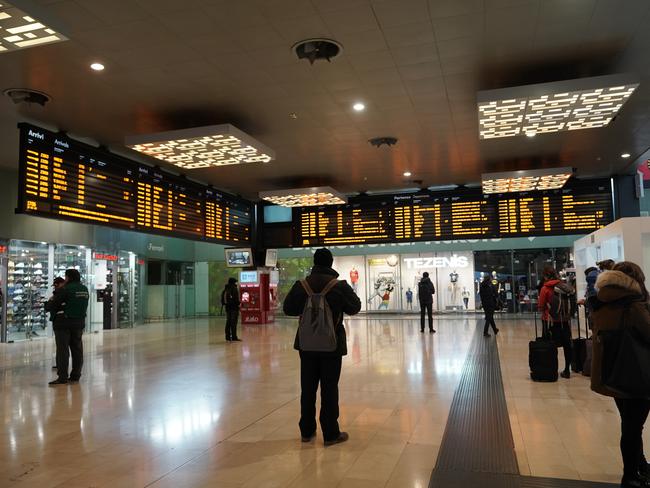
The advice came a day after Italy’s prime minister announced the entire country would be placed on lockdown until April in a bid to stem its coronavirus outbreak.
The announcement triggered chaos across Italy with more than 20,000 people in the north attempting to escape south.
Giovanni Rezza, the head of infectious diseases at Italy’s Higher Institute of Health, told local media the trains were like “biological bombs”.
The deadly virus has now killed 631 people in Italy (at 8am AEDT), a 36 per cent jump from the day before. The newest figures also counted more than 10,000 confirmed cases in Italy.
A doctor at a hospital in Bergamo, near Milan, revealed the difficult choices that were now being made to ration medical care as the strain on the system became too much.
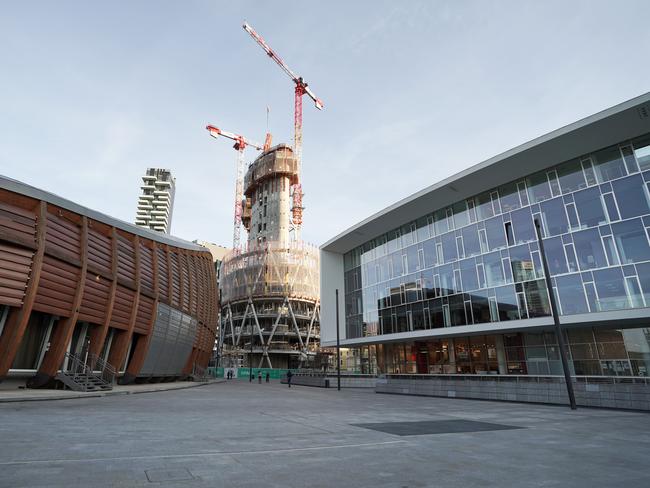
“If someone between 80 and 95 has serious breathing difficulties, you probably don’t proceed,” Dr Christian Salaroli, an anaesthetist, told The Times of London newspaper.
And nurse Elena Pagliarini has become a symbol of the hardworking Italian medical staff after a picture of her asleep at a desk, still in a surgical mask and gown was published on Facebook.
“I hadn’t finished my shift yet when the photo was taken. It was just before 6am and I was absolutely shattered,” The Sun reported.
“I had another hour to go before I finished and I just collapsed.
“That night had been really tough but we are all working together.”
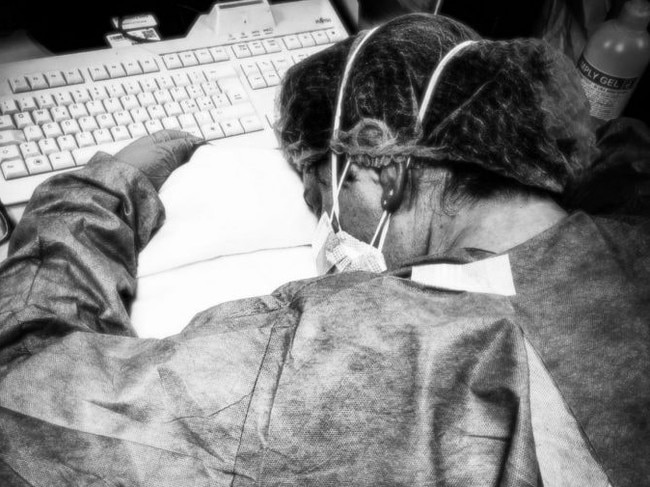
Elsewhere in Europe, Ireland has cancelled all of its St Patrick’s Day celebrations on March 17 and the UK reported its sixth death from coronavirus and 373 confirmed cases (at 8am AEDT).
Sporting matches across most of Europe will be played without crowds, except for the Premier League in the UK where pre-match handshakes have been banned.
La Liga, Spain’s football league, will be played behind closed doors until April after the Mediterranean nation reported a big jump in coronavirus cases. More than 1600 people have the virus (at 8am AEDT).
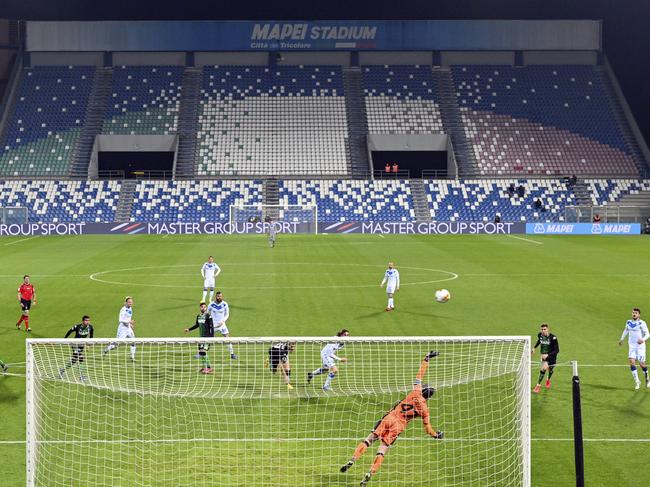
France adopted similar measures but is reluctant to close its borders with EU nations.
Germany, which has also reported more than 1000 coronavirus cases, has admitted it will likely fall into recession due to the illness.
“Unfortunately we’re expecting Germany to go into recession in the first half of the year,” the head of the Kiel Institute for World Economy, (IfW), Gabriel Felbermayr, told reporters.
Universities have also been shut for the next fortnight in a bid to stop the spread.
EXPAT AUSSIE ON ‘SOMBRE’ ITALY
As Italian Prime Minister Giuseppi Conte told 60 million Italians to “stay at home” as the Mediterranean nation deals with one of the biggest outbreaks of the coronavirus, an Australian expat has described the “sombre and depressing" feeling enveloping the country.
Dillon Burt, a teacher living in Turin, told the ABC that the lockdown had set off “a very strange feeling”.
“It caused a little bit of a panic I think amongst a lot of people,” he said, describing people being let in 10 at a time at supermarkets to get supplies.
“We had to wear gloves to touch all produce whether it be fresh or packaged as well as one metre distance from the cashier and other people who are working around the supermarket.
“It’s quite depressing,” Mr Burt told the ABC.
The teacher added he was conducting lessons “via Skype”.
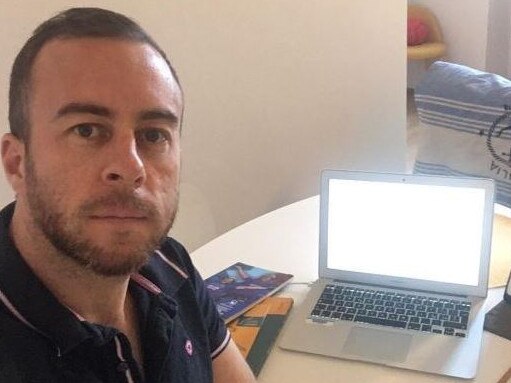
ITALIANS ‘TERRORISED’ BY VIRUS
In Italy, travel restrictions previously limited to the country’s north were extended everywhere beginning Tuesday, with soldiers and police enforcing bans.
Some 9172 people were infected in Italy and 463 have died and there was a growing sense the numbers would only worsen.
“We’re only at the beginning,” said Dr Massimo Galli, head of infectious disease at Sacco Hospital in Milan, where people at the city’s main train station were required to sign forms certifying the necessity of their travel.
The boisterous hum of Rome dwindled to a whisper and police patrols kept people apart in cafes as Italy enforced an extraordinary, sweeping lockdown on Tuesday in hopes of not becoming the next epicentre of the spreading coronavirus epidemic now that life in China is edging back to normal.
The travel restrictions that were extended across Italy illustrated how the virus and the broad disruptions it is causing are sweeping westward from China, where the outbreak began.
Teams of Italian police patrolled cafes to make sure owners were keeping customers one metre apart.
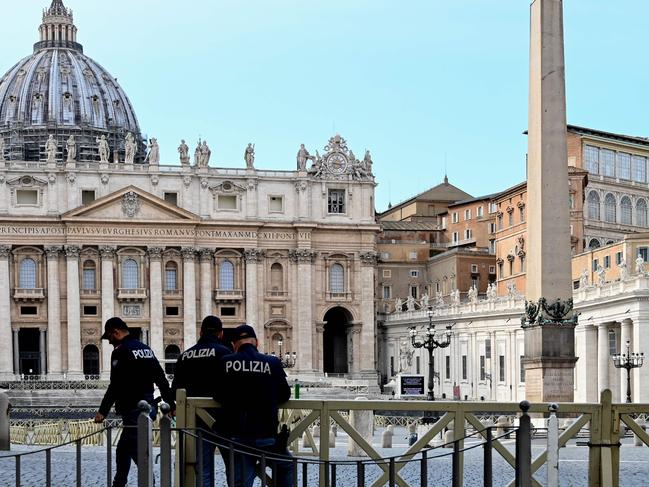
The streets of the Italian capital were as quiet as they are during the annual mid-August holiday shutdown.
“It’s bad. People are terrorised,” said Massimo Leonardo, who runs a market stall.
“I’ve never seen anything like it.”
Italy increasingly found itself sealed off as countries elsewhere in Europe and farther afield sought to keep infections contained to the peninsula.
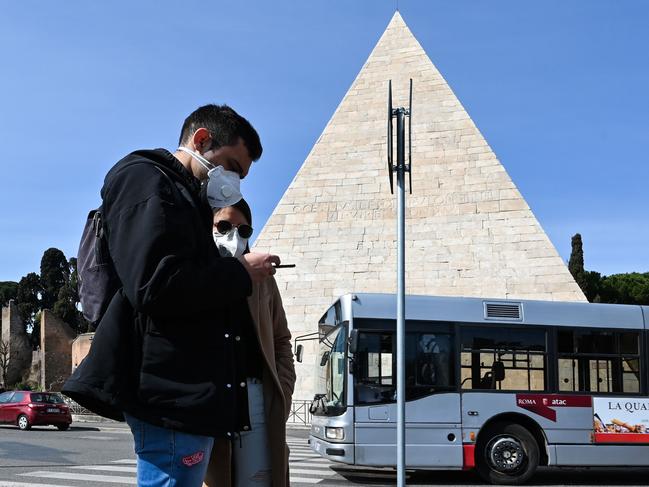
Malta and Spain announced a ban on air traffic from Italy.
Slovenia closed its border to the country, Malta turned away another cruise ship and British Airways cancelled flights to the whole country.
Austria barred travellers from crossing the border without a medical certificate.
Britain, Ireland, Hong Kong and Germany strengthened travel advisories or flat out urged their citizens to leave.
Even the Vatican erected a new barricade at the edge of St. Peter’s Square.
“Get out of northern Italy if you’re there. We don’t know how long the Italian authorities will keep the window open,” said Erik Broegger Rasmussen, head of consular services for Denmark’s foreign ministry.
More than 100 countries – over half of the United Nations’ membership – have now confirmed cases.
Panama and Mongolia, which borders China, were the newest countries to announce infections.
France’s government advised voters to bring their own pens to local elections Sunday so they won’t have to share.
Morocco reported its first death of a virus-infected person – only the second confirmed fatality in Africa.
In Spain and France, soccer’s biggest stars prepared to play in empty stadiums.
Bans on public gatherings silenced entertainers.
Sony Pictures delayed the launch of Peter Rabbit 2, which stars Rose Byrne, to August.
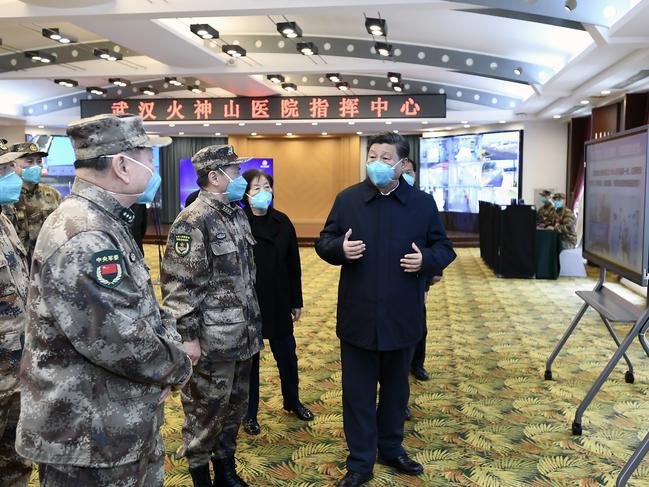
Outbreaks flared in France, Spain and Germany, and fear grew in the United States, where more than 750 people are infected and even some senior political leaders were quarantined.
New Jersey logged its first coronavirus death, Governor Phil Murphy announced, according to news reports.
The governor said the victim was a man in his 60s who had a history of travelling between New Jersey and New York, and was admitted to Hackensack University Medical Centre on March 6, WPIX reported.
“We are sad to report the first death in a case of Covid-19 in New Jersey,” Gov. Murphy said in a statement.
“Our prayers are with the family during this difficult time. We remain vigilant to doing all we can — across all levels of government — to protect the people of New Jersey.”
NEW YORK VILLAGE IN LOCKDOWN
New York Governor Andrew Cuomo has deployed the National Guard to enforce a one mile (1.6km) radius coronavirus “containment area” in a Westchester County community just north of Manhattan dubbed perhaps the “largest cluster” of cases in America.
“New Rochelle, at this point, is probably the largest cluster of these cases in the United States,” Governor Cuomo said.
“And it’s a significant issue for us.”
The midpoint of the circle will be the Young Israel of New Rochelle Synagogue, where a lawyer at the centre of the area’s now-108-patient outbreak worships, officials said.
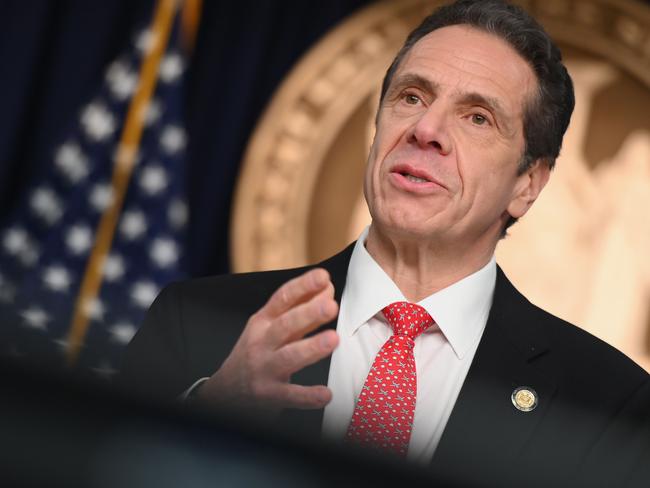
Cuomo announced he was dispatching the National Guard to enforce the closure of “large gathering areas” within the radius, including schools, houses of worship, and other large gathering facilities effective starting Thursday local time and running for two weeks.
The two Metro-North train stations serving the area will remain open, transit sources said.
Grocery stores will not be closed, and civilians will be free to come and go from the containment area.
“We’re also going to use the National Guard in the containment area to deliver food to homes, (and) to help with the cleaning of public spaces,” said Cuomo.
SUFFERERS WILL RECOVER WITHIN TWO WEEKS
For most people, the new coronavirus causes only mild or moderate symptoms, such as fever and cough.
For some, especially older adults and people with existing health problems, it can cause more severe illness, including pneumonia.
The World Health Organisation said people with mild illness recover in about two weeks, while severe cases may last three to six weeks.
In mainland China, where the outbreak emerged in December, almost three-fourths of its more than 80,000 patients have recovered.
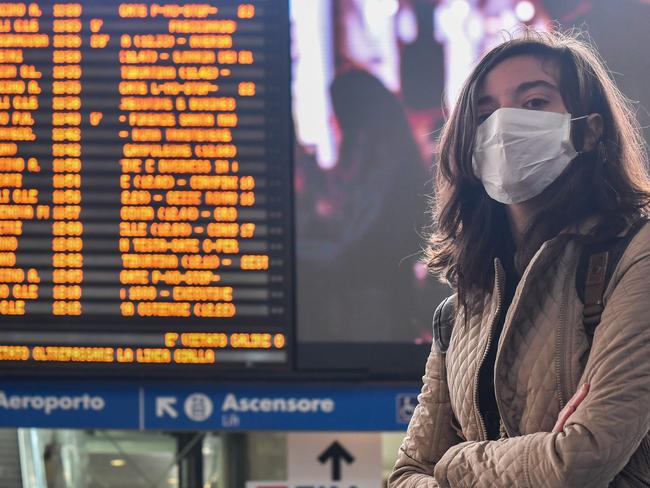
Regardless, the virus has shaken global markets with stocks taking their worst one-day beating on Wall Street since 2008 and oil prices suffering their most brutal losses since the start of the 1991 Gulf War.
CHINA’S PRESIDENT VISITS EPICENTRE
China’s president visited the centre of the global virus outbreak on Tuesday as Italy began a sweeping nationwide travel ban and people worldwide braced for the possibility of recession.
President Xi Jinping’s trip to the coronavirus’ epicentre of Wuhan – his first since the start of the outbreak – came as parts of his country return to normalcy, and was a sign of the diminishing threat the illness presents in China as it spreads west.
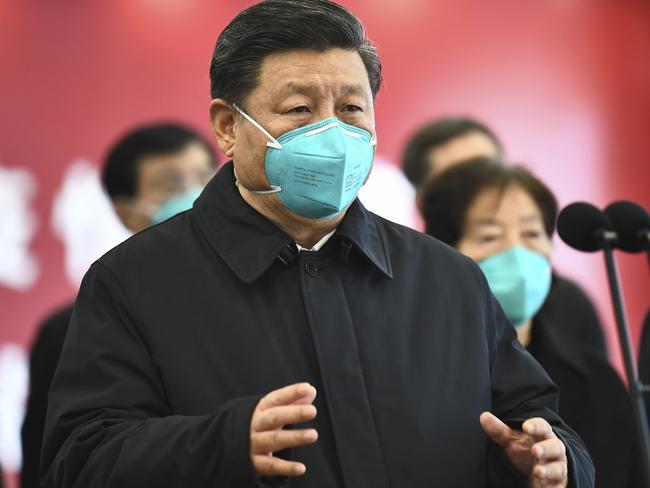
Xi’s trip to Wuhan came as the country recorded just 19 new cases of the virus on Tuesday. The official Xinhua News Agency said Xi went to a hastily built hospital, visited with patients and encouraged staff to “firm up confidence in defeating the epidemic.”
He then visited Wuhan residents under quarantine at home, Xinhua reported.
The visit also was likely to be seen as an attempt to bolster views of the ruling Communist Party’s handling of the crisis.
Xi was conspicuously absent from the public eye during the early days of the outbreak and alarms were not sounded until late January.
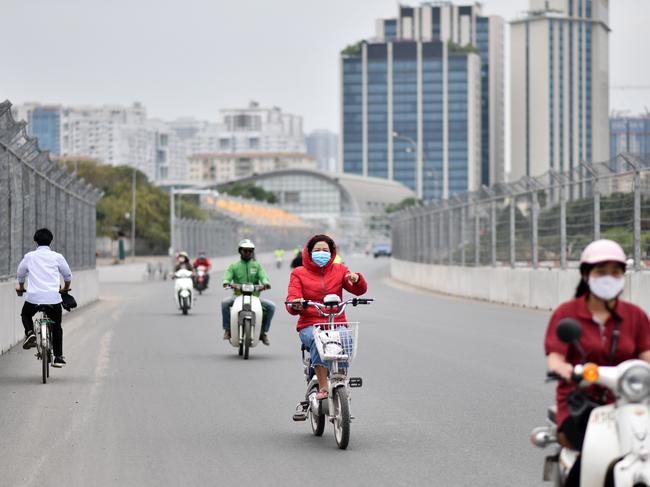
Wuhan and nearby cities have been under lockdown since then, though, in a virus- containment measure.
Ying Yong, the party secretary of Hubei province where Wuhan is located, told local officials that preparations should be made for resuming business production and the safe and orderly movement of individuals, according to a notice published on Hubei’s government website.
Already, there are signs the lockdown is loosening. Jingzhou, a city in Hubei, has ordered roads and village entrances in low-risk areas to be reopened to restore agricultural production.
The edge toward normalcy in China and improving reports from South Korea – where new infections continued to dip – contrasted with a widening problem elsewhere in the world.
Italy’s far-reaching restrictions are to last through April 3 and violators risk up to three months in jail or fines of 206 euros.
Schools and universities were remaining closed and pubs, eateries and cafes were to shutter at dusk.
“Our habits must be changed, changed now,” Prime Minister Giuseppe Conte said.
HOW CORONAVIRUS COULD KILL LIVE TV
Live studio audiences in Australia could be dead, with all local TV networks considering a ban amid escalating coronavirus fears.
ABC’s Q&A program has confirmed it is making plans to go to air without a live, interactive audience as early as next week – as local health officials race to stop the pandemic spreading.
Host Hamish McDonald addressed the evolving threat with the studio audience before the show kicked off this week and expressed his disappointment at the looming ban.
McDonald also told the audience he was advised against taking individual selfies with anyone, under new prevention protocols – instead posing for a group shot – while producers distributed hand sanitiser throughout the recording.

In similar TV moves, producers of Nine’s The Voice sent fans attending its blind auditions last weekend a warning letter advising them to stay away from the reality show’s new Moorebank studio if they had recently travelled to high-risk Covid-19-affected countries or showed any of the virus’ symptoms.
A Nine spokeswoman said: “We have a team working on this and obviously the situation changes day to day, but right now we are business as usual. The Voice shoots are not until later this month for the next (battle) rounds.”
Network 10 is also monitoring official health updates on the virus before it excludes audiences from Studio 10, The Project, Dancing With The Stars and the live finale of Australian Survivor later this month.
A 10 spokesman told News Corp Australia: “The safety and wellbeing of our employees is paramount and we take our responsibility for audiences who come to our shows very seriously,” adding “we will continue to monitor the situation closely.”
A spokeswoman for Channel 7, which begins filming auditions for Australia’s Got Talent later this month, said it was also assessing the risks to staff and studio guests.
Meanwhile, Fox Sports have invited staff, instead of fans, to man the audience for its live programming, including The Late Show with Matty Johns Show, which returns for the new league year this Thursday evening.
A Fox Sports spokesman said: “Amid all of our genuine concerns and caution, there is a ray of happiness – in house staff from across the Foxtel group of businesses have been invited to roll up as the studio audiences for our fun shows Matty Johns, Bounce and Narrow World of Sports.”
The rolling crisis talks come as US game show Wheel of Fortune and long running quiz show Jeopardy! announced they were banning studio audiences “indefinitely” over coronavirus fears.
Audiences for both game shows tend to be elderly and travel from out of town to attend the filmings, while Jeopardy’s 79-year-old host Alex Trebek, who is battling pancreatic cancer, would also be at risk.
